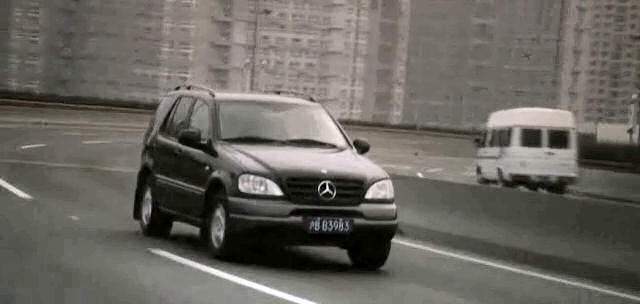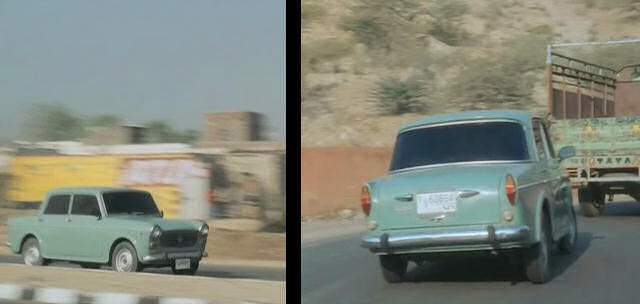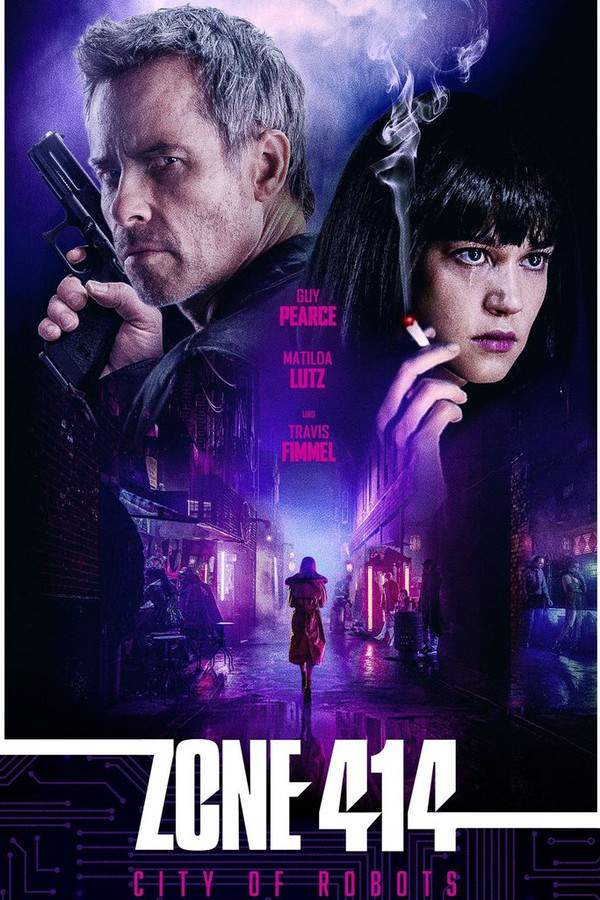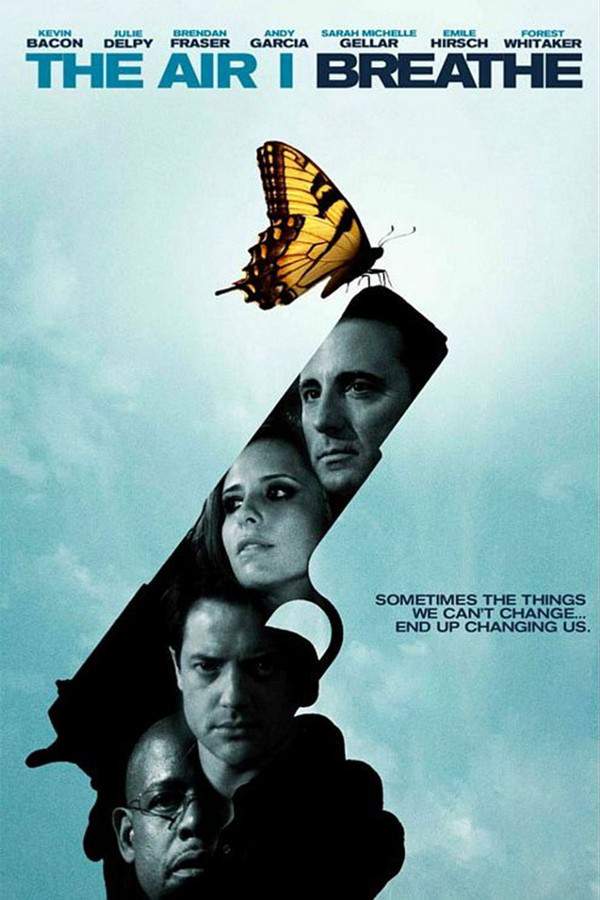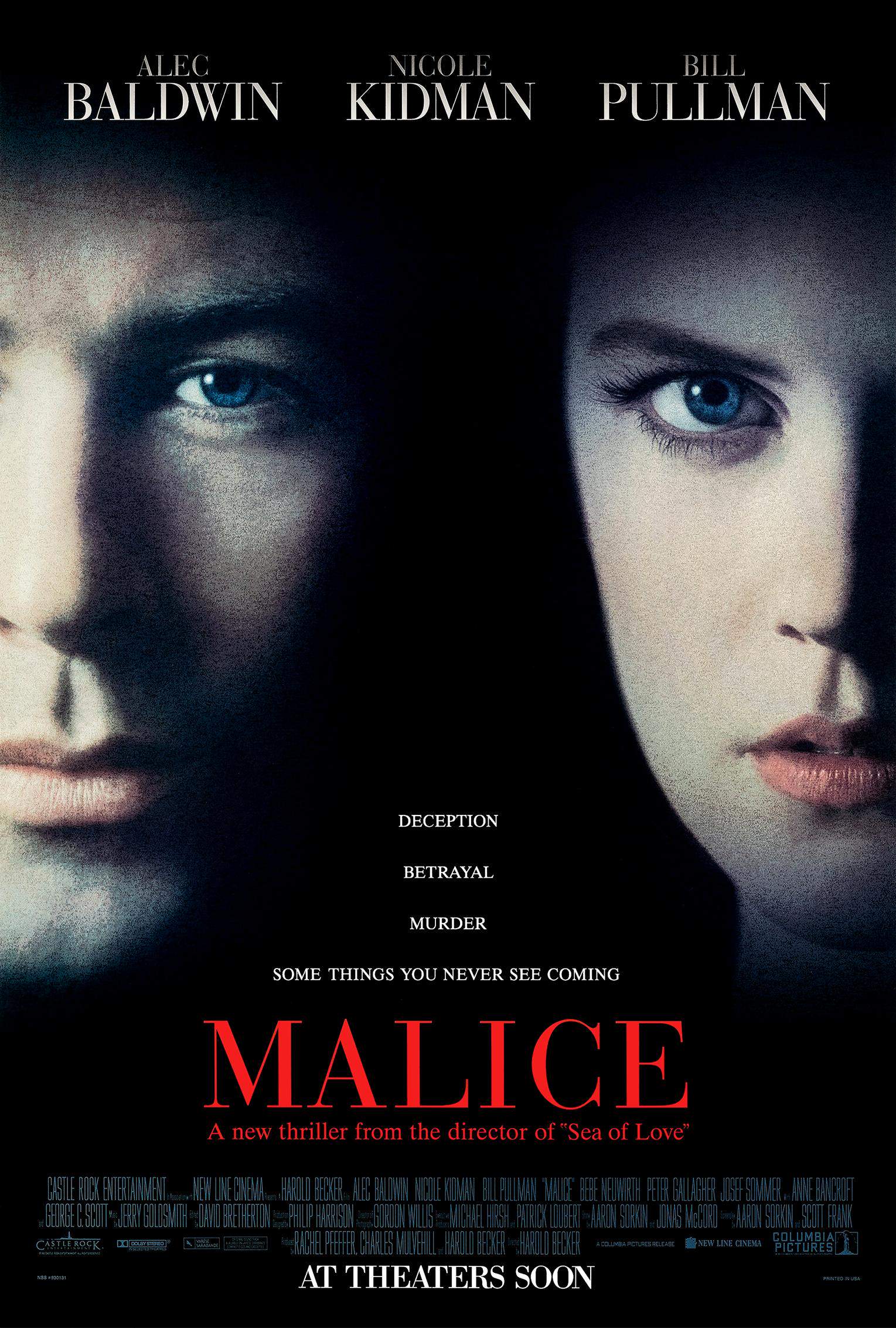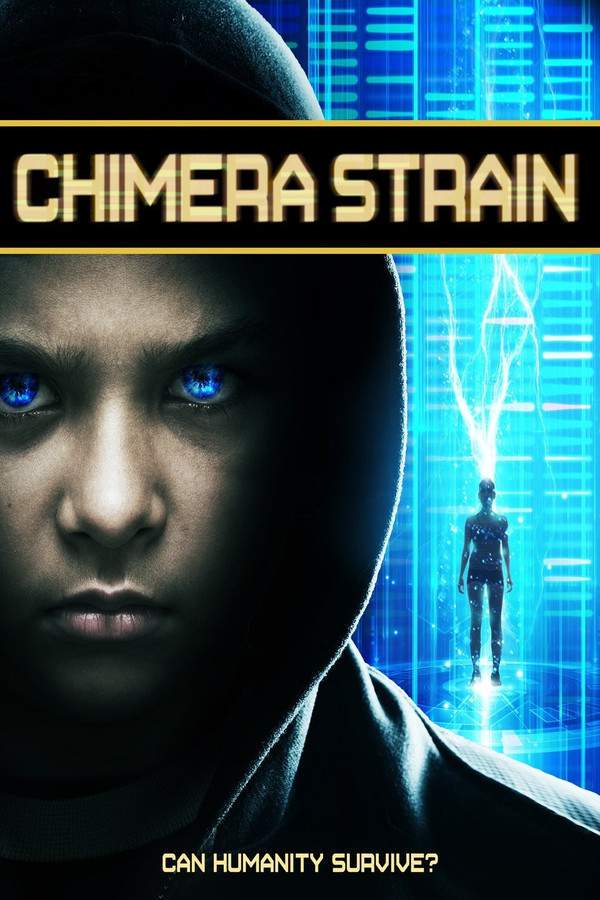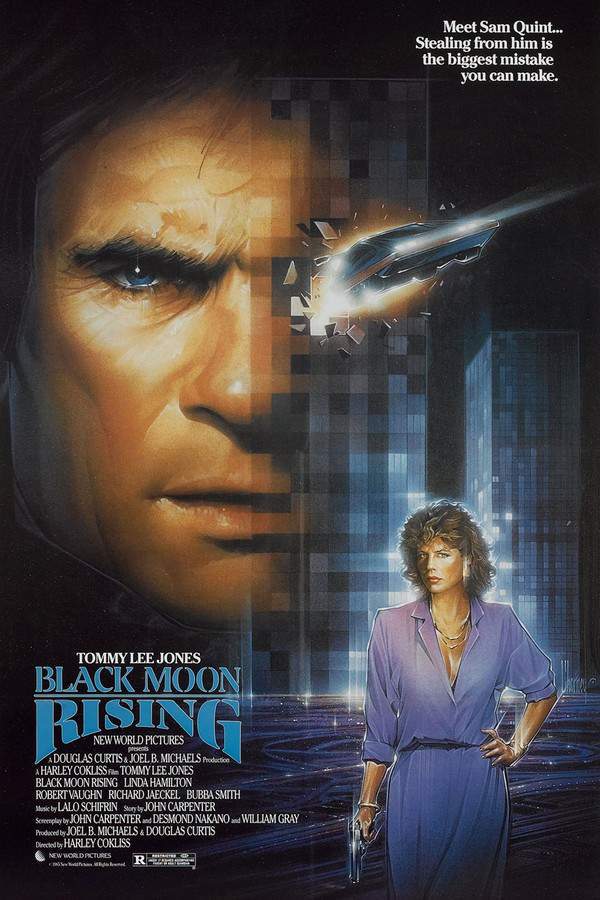Code 46 2004
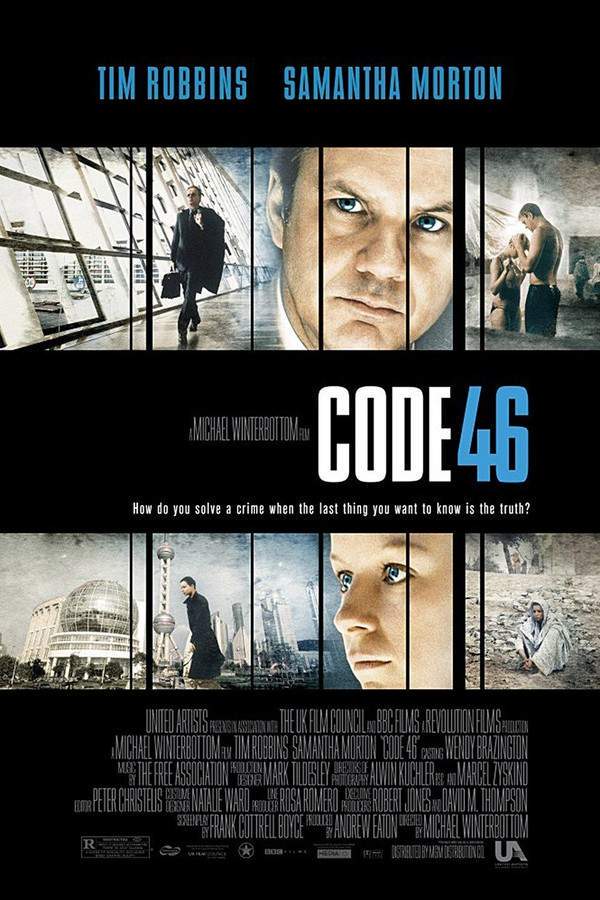
In a futuristic and dystopian Shanghai, an insurance investigator uncovers a complex forgery ring where identity and genetics hold significant value. While investigating, he finds himself entangled in a passionate and forbidden affair, blurring the lines between his professional duties and personal desires. A shocking murder throws the city into turmoil, forcing him to confront a dangerous conspiracy and fight to expose the truth behind the deception.
Does Code 46 have end credit scenes?
No!
Code 46 does not have end credit scenes. You can leave when the credits roll.
Meet the Full Cast and Actors of Code 46
Explore the complete cast of Code 46, including both lead and supporting actors. Learn who plays each character, discover their past roles and achievements, and find out what makes this ensemble cast stand out in the world of film and television.
External Links and Streaming Options
Discover where to watch Code 46 online, including streaming platforms, rental options, and official sources. Compare reviews, ratings, and in-depth movie information across sites like IMDb, TMDb, Wikipedia or Rotten Tomatoes.
Ratings and Reviews for Code 46
See how Code 46 is rated across major platforms like IMDb, Metacritic, and TMDb. Compare audience scores and critic reviews to understand where Code 46 stands among top-rated movies in its genre.

57
Metascore
5.3
User Score


51%
TOMATOMETER

58%
User Score

62
%
User Score
Take the Ultimate Code 46 Movie Quiz
Challenge your knowledge of Code 46 with this fun and interactive movie quiz. Test yourself on key plot points, iconic characters, hidden details, and memorable moments to see how well you really know the film.
Code 46 Quiz: Test your knowledge on the intriguing themes and plot of the 2004 film Code 46.
What is the primary role of William Geld in Code 46?
insurance investigator
doctor
journalist
corporate spy
Show hint
Full Plot Summary and Ending Explained for Code 46
Read the complete plot summary of Code 46, including all major events, twists, and the full ending explained in detail. Explore key characters, themes, hidden meanings, and everything you need to understand the story from beginning to end.
In a dystopian future, society is starkly divided into two segments: the bustling urban environments and the neglected underclass living on the outskirts. This division is fortified by a system of health records known as “papeles,” acting as a gateway to the desirable cities.
William Geld, an investigator focused on insurance fraud, finds himself in Shanghai with the mission to interview individuals at the mysterious corporation known as “The Sphinx.” This organization is pivotal in producing the essential papeles. As William investigates, he becomes entangled with a young employee, Maria Gonzalez, who is accused of potential fraud. His professional detachment crumbles as he succumbs to his feelings, resulting in an illicit affair that blurs the lines between duty and desire. During one of their secret meetings, William discovers a forged document, which he promptly decides to exploit for his personal gain.
However, William’s superiors are not pleased with his approach, chastising him for his failure to identify the real culprit behind the forgery. Defiance surges within him as he calls for someone else to be dispatched to handle the case, hinting at the possibility of an accomplice. Unfortunately, his request is ignored, and he is left with the task of resolving the issue himself.
Back in Shanghai, William’s investigation leads him to an empty apartment previously inhabited by Maria. Only a mysterious medical appointment serves as a hint to her fate. When he visits the clinic, he uncovers that Maria was pregnant but had to terminate the pregnancy due to a breach of Code 46—a serious violation. This shocking discovery destabilizes William, compelling him to reconsider everything he knows about his connection to her.
Pushing further, William learns that Maria is slated for memory erasure, a procedure designed to obliterate her memories of the infraction. Leveraging his investigator credentials, he convinces the clinic to release her into his oversight, masquerading as a crucial witness in a fraud case. As he divulges to Maria the truth about her erased memories and his own ethical failings, her world is turned upside down, prompting him to sedate her in a bid to calm her distress.
While Maria rests, William discreetly collects a strand of her hair for an immediate DNA analysis, uncovering an extraordinary surprise: Maria is a genetically engineered clone of his mother, launching him into an existential crisis concerning his identity. Armed with this new information, William contemplates the possibility of returning to his family, only to realize that his 24-hour cover has expired, leaving him vulnerable to the authorities.
Facing the stark truth of his predicament, William realizes that obtaining a crucial papel from Maria is his only hope of returning home. Unfortunately, she grapples with unexpected changes in her job, complicating her efforts. As Maria embarks on a train journey to meet him, snippets of her past come flooding back, reawakening emotions that had been buried. In a surprising twist, William chooses to abandon his original plan, opting instead to stay with Maria.
Their adventure leads them to the ancient streets of Jebel Ali in the United Arab Emirates, where they secure a basic room. It is here that William explicates the entirety of the memory-erasure procedure, revealing both its implications and a hidden virus that triggers adrenaline in Maria whenever she encounters someone responsible for a Code 46 violation. Choosing to withhold the secondary effect of the virus from her, William fears the ramifications of this knowledge.
As they navigate their escape in a dilapidated vehicle, their attempts to evade capture ultimately fail, resulting in a catastrophic crash that leaves both William and Maria unconscious among the wreckage. When William stirs back to life in a Seattle hospital, he is encircled by his wife and child, devoid of any recollection of Maria or their shared experiences. Meanwhile, Maria’s sentence is much grimmer; she is cast away into the harsh desert, her memories of William distorted into an overwhelming obsession, forcing her to endure a painful existence devoid of his presence while still haunted by memories of their brief but impactful connection.
Uncover the Details: Timeline, Characters, Themes, and Beyond!

Coming soon on iOS and Android
The Plot Explained Mobile App
From blockbusters to hidden gems — dive into movie stories anytime, anywhere. Save your favorites, discover plots faster, and never miss a twist again.
Sign up to be the first to know when we launch. Your email stays private — always.
Watch Trailers, Clips & Behind-the-Scenes for Code 46
Watch official trailers, exclusive clips, cast interviews, and behind-the-scenes footage from Code 46. Dive deeper into the making of the film, its standout moments, and key production insights.
Cars Featured in Code 46
Explore all cars featured in Code 46, including their makes, models, scenes they appear in, and their significance to the plot. A must-read for car enthusiasts and movie buffs alike.
Code 46 Themes and Keywords
Discover the central themes, ideas, and keywords that define the movie’s story, tone, and message. Analyze the film’s deeper meanings, genre influences, and recurring concepts.
Code 46 Other Names and Titles
Explore the various alternative titles, translations, and other names used for Code 46 across different regions and languages. Understand how the film is marketed and recognized worldwide.
Similar Movies To Code 46 You Should Know About
Browse a curated list of movies similar in genre, tone, characters, or story structure. Discover new titles like the one you're watching, perfect for fans of related plots, vibes, or cinematic styles.
Quick Links: Summary, Cast, Ratings, More

What's After the Movie?
Not sure whether to stay after the credits? Find out!
Explore Our Movie Platform
New Movie Releases (2025)
Famous Movie Actors
Top Film Production Studios
Movie Plot Summaries & Endings
Major Movie Awards & Winners
Best Concert Films & Music Documentaries
Movie Collections and Curated Lists
© 2025 What's After the Movie. All rights reserved.


















